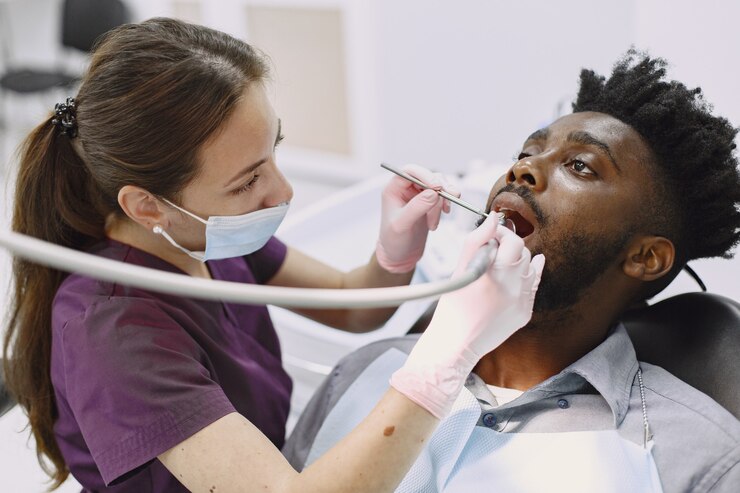Key Takeaways
● Preventive dental care can lead to better overall health and reduce medical costs.
● Frequent dental examinations are essential for identifying oral health problems early on.
● Simple daily habits play a vital role in maintaining good oral hygiene.
Table of Contents
- The Importance of Preventive Care
- Routine Dental Checkups
- Daily Oral Hygiene Habits
- Impact of Nutrition on Dental Health
- Link to Overall Health
- Cost Savings of Preventive Care
- Common Preventive Treatments
- Final Thoughts
The Importance of Preventive
Care Preventive dental care is fundamental for maintaining oral health and overall wellbeing. Research indicates that people who adhere to regular dental care routines have fewer cavities, less gum disease, and lower incidence rates of other serious health issues. For residents, having access to dental insurance in Texas can make a significant difference in adhering to these routines. Dentists are crucial in helping patients create an effective preventive care strategy to maintain good oral health. With the appropriate preventive measures, patients can avoid undergoing extensive dental procedures.
Routine Dental Checkups
Routine exams and preventive care are necessary to maintain dental health. Examining your mouth every six months helps prevent oral cancer, gum disease, and cavities early on. The primary advantage is that regular dental examinations can eliminate plaque and tartar, which brushing alone cannot. According to the Centers for Disease Control and Prevention, adults should visit the dentist regularly to maintain proper oral hygiene and avoid dental issues.
Daily Oral Hygiene Habits
Preventive dental care begins with daily routines at home. To keep your teeth healthy, it’s important to use mouthwash, floss every day, and brush with fluoride toothpaste twice a day. Many overlook the importance of flossing, even though it is crucial for eliminating plaque and food debris from areas that are difficult to reach with a toothbrush. The American Dental Association states that consistent flossing can prevent gum disease and plaque build-up. Additionally, mouthwash can help reduce bacteria and freshen your breath, ensuring a comprehensive approach to oral hygiene.
Impact of Nutrition on Dental
Health Dietary practices play a significant role in maintaining dental health. Enhancing tooth strength and general dental health can be achieved with a diet high in vitamins and minerals, like calcium and vitamin D. Strong teeth and gums require nutrient-rich foods like dairy, almonds, and leafy greens. On the other hand, tooth decay and cavities can result from eating a lot of sugar. Maintaining a balanced diet is, therefore, essential for maintaining dental health. Although reducing the consumption of sugary drinks like soda will help reduce tooth erosion and decay, healthy beverages like milk and water are equally beneficial.
Link to Overall Health
There are significant effects of preventive dental care that go beyond the mouth. Health problems like diabetes, heart disease, and respiratory infections all get worse if dental care is neglected. Gum disease-related inflammation and bacteria can spread to different body organs and have an effect. Complete dental care can improve general health and reduce the likelihood of these risks. Good dental health is essential to overall health since the status of the mouth mirrors the state of the body.
Cost Savings of Preventive Care
Long-term financial benefits are possible when preventative dental care is invested in. It is far less expensive to prevent gum disease, cavities, and other oral health issues than to treat them once they arise. Periodontal and root canal therapy are more expensive than routine cleanings and examinations. Thus, preventing illness also saves money in the future and improves health. Patients can avoid high medical expenditures by treating tooth problems early on and obtaining more economical dental treatment.
Common Preventive Treatments
Dentists offer various preventive treatments to help maintain oral health. Fluoride treatments, sealants, and professional cleanings are standard procedures that can prevent tooth decay and gum disease. Dentists may also provide personalized advice on proper brushing and flossing techniques tailored to each patient’s needs. These treatments are simple yet effective measures to ensure long-term dental health. Moreover, early identification and treatment of potential issues through regular exams can prevent the progression of diseases that may become harder to manage in later stages.
Final Thoughts
Preventive dental care is required to preserve general health and wellness. A healthy diet, daily oral hygiene routines, and regular dental exams can help prevent some common dental issues. This proactive approach improves quality of life and significantly saves costs over time. In the end, maintaining your oral health is a means of guaranteeing your general wellbeing. Rewellbeingtal exams can contribute to lifelong dental health and wellness because preventing illness is always preferable to treating it

